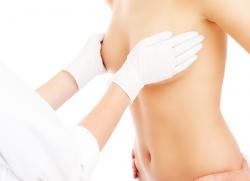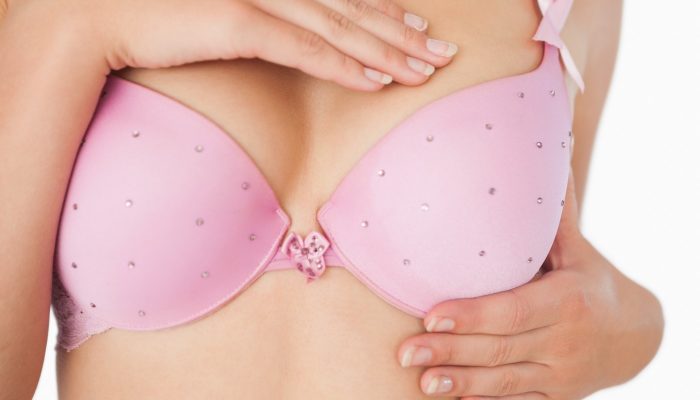

Reproductive function is the most important property of the female body. Thanks to her, it becomes possible to conceive and bear a child, and in the future to feel the joy of motherhood. For this, regular changes in the pituitary-ovarian-uterine system, which are the basis of the menstrual cycle, are extremely important.
Every woman experiences her period differently. But many people have similar symptoms. For example, almost all women experience breast engorgement, and someone even notes pain in the mammary gland a week before menstruation. This can cause significant discomfort and disrupt the usual rhythm of life. Accordingly, the question arises about the causes of such a state and possible consequences.

Main Volume female breast occupies the mammary gland. Layers of connective tissue divide it into lobes, and the latter consist of smaller lobules. And those, in turn, are formed from the actual glands - the secretory alveoli with the excretory duct (tube). Milk ducts open into wide sinuses, which end at the nipple.
The function of the mammary gland depends entirely on the regulatory influence of hormones. The main role in this process is played by the ovaries and the pituitary gland. Estrogen stimulation promotes the growth of ducts and stromal elements, while progesterone increases the number of alveoli and the size of the lobules. An important role of prolactin is the formation of additional receptors for these hormones in the gland tissue and stimulation of lactation.
The menstrual cycle normally lasts from 22 to 34 days and consists of two main phases: follicular and luteal. And they are separated by ovulation - the rupture of the dominant follicle and the release of the egg, which occurs on average for 14 days. It is the approach to this moment that is accompanied by a significant increase in sex hormones in the body, especially estrogen, which begins to increase immediately after the end of menstruation. And after ovulation, progesterone gradually reaches its peak.
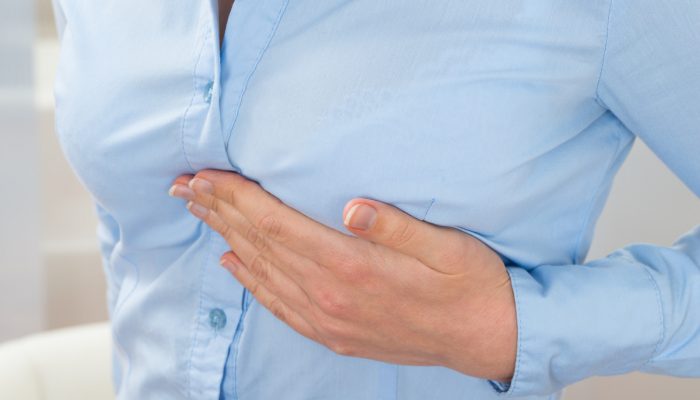
If your chest hurts before menstruation, then you need to deal with possible reasons. Unpleasant sensations in the gland area can also occur normally - this is a consequence of hormonal changes in the body and its preparation for a possible pregnancy. But physiologically only the so-called breast engorgement with increased sensitivity and slight bursting, but without any pain. Otherwise, you need to look for another reason for the changes.
When chest pains are associated with the expectation of menstruation, several common conditions among women can be assumed:
The latter can occur under the influence of numerous external factors: physical or neuropsychic overload, climate change, medication, irregular sexual life. In addition, hormonal dysfunction is a frequent consequence of endocrine pathology, inflammatory diseases of the gynecological sphere, operations or injuries.
There is also such a situation when the chest hurts, and menstruation still does not occur - a month or two has already passed since the last discharge. This may be due to pregnancy (normal, ectopic), postpartum period and lactation, abortion. And pain sensations without much connection with the menstrual cycle are observed with mastitis and oncological diseases. The risk of the latter should be carefully assessed by the physician when examining the patient.
The chest can hurt for various reasons. As a rule, they are associated with hormonal influences, but other factors cannot be excluded.
Any symptom that worries a woman is analyzed during a medical examination. First, all complaints are clarified with their subsequent detailing, and then they proceed to the examination - clinical and gynecological. Be sure to determine the subjective coloring and objective characteristics of chest pain:
But, besides this, you need to pay attention to other signs that can provide significant support in making a diagnosis. To identify them, you need to navigate in the clinical picture of those conditions in which most often a woman can ache in her chest.
If the chest hurts a week before menstruation with an unchanged cycle, then you should think about premenstrual syndrome, because this condition is typical for three out of four young women. It is associated with an imbalance in neurohumoral regulation and is manifested by the following main symptoms:
In addition to general somatic manifestations, neuropsychiatric disorders become an obligatory component of the clinical picture: irritability, depressed mood, anxiety, insomnia, increased sensitivity to sounds and smells.
Premenstrual syndrome is characterized by cyclicity and occurs only in the luteal (second) phase - a few days or 1-2 weeks before the onset of menstruation.
![]()
Mastopathy refers to pathological conditions that are benign in nature, but nevertheless must be detected in time. This disease is associated with the growth of gland tissue - diffuse or nodular - which is accompanied by the formation of fibrous areas and cysts. And the following symptoms prevail in the clinical picture:
On palpation, small nodules can be detected - soft and not soldered to the surrounding tissues, having clear contours. But if the proliferation of the glandular epithelium has a pronounced degree, then the risk of malignant tumors increases by almost a third. Therefore, every woman with mastopathy should be examined regularly.
It should be noted that pain and engorgement of the breast may indicate the onset of pregnancy. This is so with only one condition: a woman notes a delay in menstruation after a previous sexual intercourse. Signs of a physiological pregnancy are probably known to many, but an ectopic pregnancy should be discussed in more detail. In this case, the embryo develops outside the "children's place". The body initially perceives this as a normal pregnancy, because the same hormonal changes occur.
But at a certain point it becomes clear that something is going wrong. The fallopian tube, in which the fetal egg grows, begins to stretch, which leads to the appearance of other symptoms:
The latter is observed when the fallopian tube ruptures - then internal bleeding is observed, signs of irritation of the peritoneum appear. With untimely treatment, of course, there is a high risk for a woman.
With painful sensations in the chest, it is worth thinking about a possible pregnancy - physiological or ectopic.
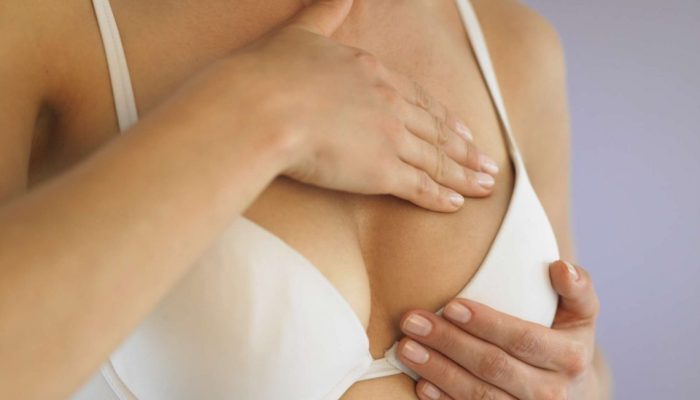
Inflammation of the mammary gland will also be accompanied by pain. Sometimes it becomes pronounced and almost permanent. In this case, there will be no connection with the menstrual cycle, but other signs will appear:
The skin of the diseased gland is often tense, and the breast itself increases in size due to swelling. The purulent process can be encysted in nature - in the form of an abscess. Then, in a certain area, a seal (infiltration) is formed, which later softens and fluctuates (during palpation, fluid oscillation is felt). Then the woman's condition worsens even more, and if left untreated, the abscess breaks out with the formation of a fistula or, worse, spreads to other tissues and penetrates into the blood.
Any changes in the mammary gland should alert the woman and lead to an appointment with a doctor. And this is no coincidence, because recently the prevalence of oncological pathology, in particular breast cancer, has been growing. It manifests itself in different ways, but the following symptoms should be especially alert:
In the early stages, the tumor can proceed without any subjective sensations, but, destroying neighboring tissues, in the future it becomes the cause of pain. And in advanced cases, cancer metastasizes to distant organs.
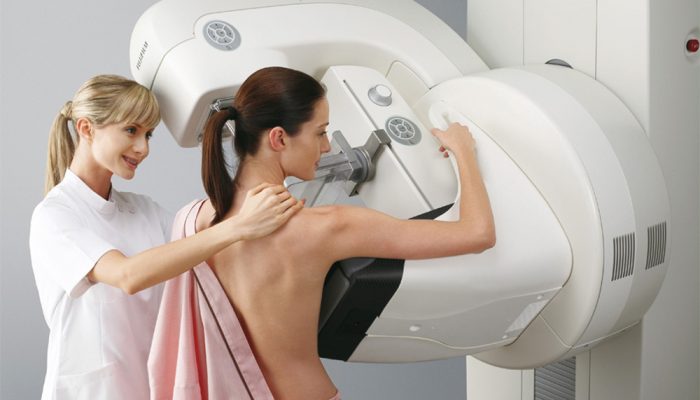
Situations when the chest hurts 2 weeks before menstruation or at other times, sometimes not associated with the cycle, require additional diagnostics. In addition to a medical examination, laboratory and instrumental studies are needed to clarify the nature of the process in the gland. These include:
With purulent mastitis, a general blood test is also done, in which signs of an inflammatory process are revealed: an increase in leukocytes and ESR. Women should undergo an examination by a gynecologist, and, if necessary, an appropriate examination to exclude concomitant pathology of the genital organs. And only after a full diagnosis, it is possible to draw a conclusion about the causes of chest pain and the methods necessary to eliminate it.
Before menstruation, many women experience chest pain. Sometimes it is a slight pulling feeling, and sometimes it is a severe pain. In any case, it is recommended to visit a doctor to find out the cause of the discomfort.
Premenstrual syndrome is difficult for many women. This is reflected in the emotional and psychological state, a woman may also experience unpleasant physical sensations. One of the most common symptoms of this condition is chest pain before menstruation.
Sometimes it's just a pulling sensation when mammary glands they swell, become more sensitive, start to get sick, but it happens that the chest hurts a lot. Discomfort can affect both sides, and sometimes only one mammary gland hurts. As soon as pain appears, you should consult a doctor to avoid serious illness.
Not every reason means the presence of pathologies in the body. The simplest factors that cause chest pain before menstruation:
Under the influence of these reasons, the chest begins to hurt only before the very beginning of the cycle, discomfort simply causes discomfort. As soon as menstruation begins, the chest stops hurting.
The process of maturation of the egg in the ovarian follicle in an adult woman is called ovulation. It occurs in the middle of the menstrual cycle. At this time, a cell suitable for fertilization matures and begins to move into the womb.
When the moment comes for the release of the egg from the ovarian follicle, hormones are released in the female body. So, at this time, about 12 days before menstruation, white discharge appears on the panties, slight pains in the lower abdomen may be noted, sometimes the mammary glands hurt. Doctors think this is normal.
In addition, under the influence of a surge of hormones, there is a slight swelling of the nipples, the mammary gland becomes very sensitive to touch. This lasts no more than one day and happens in the middle of the cycle. It is also considered normal when chest pains return for a short time before menstruation. The reason is the same - the influence of female hormones.
If before and after menstruation, the chest continues to hurt a lot, and this has been observed for more than a month, it is necessary to contact a mammologist. Such pains say that the hormonal background of the female body is out of order, and the causes may be infections of the genital organs, the presence of adhesions in the ducts of the genital organs, or an ectopic pregnancy.
Another reason why the chest hurts before menstruation is mastodynia. If chest pains are noted every menstrual cycle, with slight swelling, sensitivity increases, cyclic mastodynia is diagnosed. It is caused by premenstrual syndrome, a high production of estrogen, the female hormone. In this case, the question of whether the chest should hurt can be answered positively, but with the onset of menstruation, the pain will definitely stop.
In case of complaints, the patient is examined, the glands are felt, then the woman takes a blood test to check the level of hormones, she is given an ultrasound of the mammary glands. Ladies over forty years of age may also be prescribed a mammogram.
After finding out how the chest hurts before menstruation with cyclic mastodynia, the doctor may prescribe a diet that limits the use of caffeine, alcohol and fatty foods. The diet includes more foods rich in fiber and vitamins.
It is important to reduce excess estrogen, which can make your breasts sore in the days leading up to your period.
When a hormonal imbalance becomes the cause of non-cyclic mastodynia, at the first stage, hormone-containing drugs are selected that can restore the disturbed balance. In addition, oral contraceptives may be prescribed.
When the chest hurts a few or one day before the start of the cycle, and the sensations are sharp, affect the entire area of \u200b\u200bthe chest, even go to the shoulder blade and shoulder - this is a sign of mastopathy. If the disease progresses, discomfort remains even during menstruation, a whitish liquid is released from the nipples, and when touched, a seal is felt in the mammary gland. Against this background, some women often also feel sick before menstruation.
The main cause of mastopathy is hormonal failure. It can be triggered by diabetes, liver disease, gynecological diseases, or due to a hereditary predisposition.
During the examination, even the slightest asymmetry of the breast is checked, it is noted whether the lymph nodes in the axillary region are palpated, whether the breast contains seals. Next, the patient undergoes ultrasound and mammography.
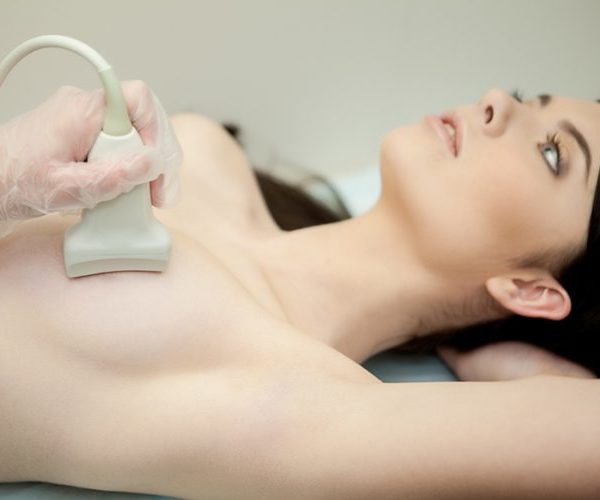
For the treatment of mastopathy, complex therapy is used:
If diagnosed a large number of seals, and against this background, one breast hurts or even both, use an oxygen-novocaine blockade. After the end of therapy, it is important that a woman monitors whether her chest will hurt before menstruation, and how strongly these sensations will be expressed.
Taking into account the characteristics of the woman's body, it can be argued that some pain in the mammary glands during ovulation and menstruation is considered the norm. The release of a hormone such as progesterone is the reason why the chest may start to hurt a little before menstruation. This is not the only change that occurs with a woman's body.
With a normal hormonal background, before menstruation, there is an increase in breast volume by about half a size, sensitivity increases, nipples swell. The general condition may also worsen somewhat: it pulls the lower abdomen, aching headaches begin, fatigue increases, sudden mood swings are possible, dizziness and nausea may occur. If all this passes with the onset of menstruation, this condition is normal.
Many women believe that mild chest pains are just a sign of imminent menstruation and track their cycle by them, and then they are worried if they do not feel familiar symptoms.
There is only one reason why - this is a hormonal failure. It can be caused by the abolition of contraceptives, age-related changes in the body, changes in the usual sex life, the appearance of a sexual partner after a long break, or, conversely, a long refusal to have sex.

If a woman is worried that her breasts have stopped hurting, it is worth visiting a doctor. You can independently monitor the health of the breast, perform regular home examinations to prevent the development of pathologies of the mammary glands.
If a woman knows that she has a hereditary predisposition to breast diseases or an unstable hormonal background, she should pay attention to such points:
In addition, a woman should be able to independently check her breasts. This is done a few days after the end of menstruation. In a sitting position, keeping her back straight, the woman feels her breasts with her fingertips. You should press as hard as possible so as not to miss any seals, squeeze the nipple in order to check if any discharge may appear.
Any pain during the examination is noted. It is important to monitor the condition of the axillary lymph nodes, pay attention to whether they are inflamed. And also just in front of the mirror, you should compare if there are any differences in both breasts.
To reduce chest pain, it is necessary to pay more attention to your diet in the second half of the cycle: if possible, remove salty and fatty foods from it, and refuse large doses of caffeine.
You should try to avoid stress before menstruation and not to overcool. In the second half of the cycle, on the advice of a doctor, you can start taking medications containing magnesium. A few days before menstruation, fluid intake should be limited. When there are already signs of the onset of menstruation, you can take painkillers.
There are proven folk remedies that can restore the balance of hormones before menstruation, and therefore relieve chest pain. A few days before the start of the cycle, you can add flaxseeds or soy products to your food. Decoctions with red clover will help.
What to do if the pain is accompanied by a general breakdown? In this case, soothing herbal decoctions containing cinquefoil leaves, celandine, nettle, peony and St. John's wort can reduce soreness and improve the condition before menstruation. They will help to relieve a little swelling and pain in the chest before menstruation, infusions of herbs with a slight diuretic effect, as well as lingonberry leaves. However, it is better before using any folk remedy consult a doctor.
Recommend related articles
How many days before menstruation does the chest hurt? This question worries many women, so it is necessary to understand this problem. Due to changes in the hormonal background, a few days before the onset of menstruation, women begin to swell and hurt their breasts. Breast- a very hormone-dependent organ, so everything is very individual here: it is impossible to say exactly how many days before menstruation the chest starts to hurt.
Experts consider it normal if certain changes begin to occur 10 days before the onset of menstruation, although in some girls PMS symptoms may appear 3-5 days before the onset of menstruation. There are other symptoms, of which the most common are:
It is worth noting that there are women who do not feel PMS symptoms at all, while others have monthly symptoms so severe that temporary disability may occur. Moreover, one must understand that swelling of the mammary glands and chest pain is not always a sign of PMS.
Why do breasts hurt before menstruation? The reason for soreness and swelling is that in the body after ovulation, which did not end with pregnancy, the alveolar tissue increases, and blood flow to the tissues of the mammary glands increases.
Additional symptoms. So, due to the increased sensitivity of the breast to changes in the hormonal background, certain processes occur in it (this may be associated with both pregnancy and menopause). The normal period for changes can be considered from 2 weeks to 2 days, that is, just before menstruation begins. In addition to pain and swelling of the mammary glands, there may be:
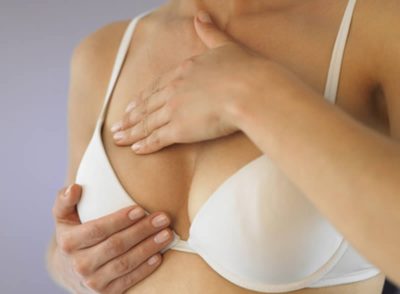
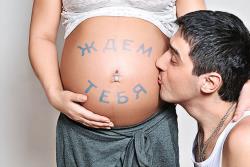
This is quite an alarming symptom for many women. But if the discharge is transparent, then you should not worry. And if the discharge is whitish, greenish, brown, or contains an admixture of blood, you should definitely contact a specialist. These symptoms may be associated with the presence of cancer:
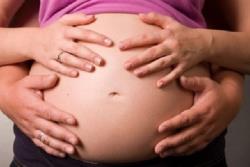
It must be remembered that it is impossible to engage in self-diagnosis; in the presence of this type of discharge, you should consult a doctor. Another symptom of PMS can be an increase in body temperature. If the temperature is insignificant (up to 37.3 °), then there is no need to worry. But if there is a gradual increase in temperature, and there is no tendency to decrease it, an appeal to a specialist is mandatory. The temperature may indicate an inflammatory process in the body of a woman, and it is also necessary to urgently exclude the possibility of developing mastitis.
How long can this PMS symptom last? The duration of this symptom, again, is purely individual. The fact is that for some women, the pain syndrome disappears on the very first day after the onset of menstruation, for someone the entire period of menstruation lasts, and someone may suffer for a few more days after it ends. But if the symptom persists for more than 10-12 days, then you should consult a specialist, as there are other causes of chest pain.
For the treatment and prevention of problems with the menstrual cycle (amenorrhea, dysmenorrhea, menorrhagia, Opsomenorrhea, etc.) and vaginal dysbacteriosis, our readers successfully use the simple advice of the chief gynecologist Leyla Adamova. Having carefully studied this method, we decided to offer it to your attention.
Breast enlargement and pain can occur before menstruation and for other reasons.
The use of hormonal contraceptives. These drugs can not only change the menstrual cycle, but also greatly affect the hormonal background, which leads to breast swelling, increased sensitivity and pain.
The presence of fibrocystic formations, for example, mastopathy. This disease is generally characterized by chest pain, but it worsens before the onset of menstruation, about 10 days before.
Violation of the pituitary gland and liver. If the pain is regular, prolonged, accompanied by fever, you should consult a doctor to exclude these pathologies.
Salty or spicy food. Excessive salt intake leads to a violation of the water-salt balance in the body, and this in turn leads to swelling not only of the chest, but also, for example, of the legs. Pregnancy. Against the background of an interesting situation, a hormonal restructuring of the entire body of a woman takes place, which is preparing for bearing a fetus. The breast performs very important functions during this period, which is why pain, discharge, an increase in its size, and an increase in sensitivity can be observed.
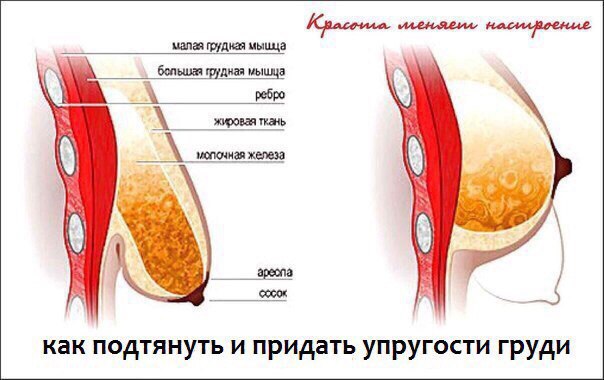
If the diagnosis is carried out and all possible pathologies are excluded, then it is necessary to think about how this PMS symptom can be alleviated. It is necessary to follow the recommendations of doctors:
Drawing pains in the lower abdomen and in the lumbar region, fatigue, irritability, breast sensitivity - all these symptoms are familiar to many women firsthand. For what reason, and how many days before menstruation does the chest hurt, and is this condition normal?
Many women mistakenly believe that chest pain that occurs during PMS is a symptom of a dangerous illness. However, in most cases, this is by no means a reason to worry and rush to the doctor. Such symptoms before menstruation are quite normal, and after the end of menstruation, they will gradually pass.
As a rule, discomfort in the chest is manifested by heaviness in the mammary glands, swelling, and, accordingly, breast enlargement. This causes some discomfort, and therefore it is important to choose comfortable and high-quality underwear for this period.
Most often, discomfort occurs during the period of ovulation, about a week or two before the onset of menstruation. However, the question of how many days before the onset of menstruation the chest hurts is purely individual, because it all depends on the duration of the cycle, and on the characteristics of the body, and most importantly, the hormonal background.
Many women, on self-examination, find small lumps in their breasts. As a rule, due to the increased production of the hormone estrogen, the tissues become denser, and therefore it is worth examining after the completion of menstruation. If the pain does not disappear, then this is an occasion to consult a doctor.
How many days before menstruation does the chest hurt: a symptom of pregnancy
It is worth noting that such sensations indicate the readiness of the body to conceive a child and further lactation. Therefore, such discomfort is quite normal. Sometimes painful tingling occurs in the mammary glands, which intensify a couple of days before the onset of menstruation. Therefore, it is impossible to give an unambiguous answer to the question of how many days before menstruation the chest hurts, because each woman has such sensations in different ways. And sometimes such discomfort may even indicate the onset of pregnancy. After all, it is heaviness and sensitivity in the chest that are very often one of the very first symptoms of a successful conception.
Thus, the answer to the question of how many days before menstruation the chest hurts is rather ambiguous. For some, discomfort begins to appear during ovulation, for some, at the very peak of premenstrual syndrome. And sometimes unpleasant tingling can occur even right before the onset of menstruation.
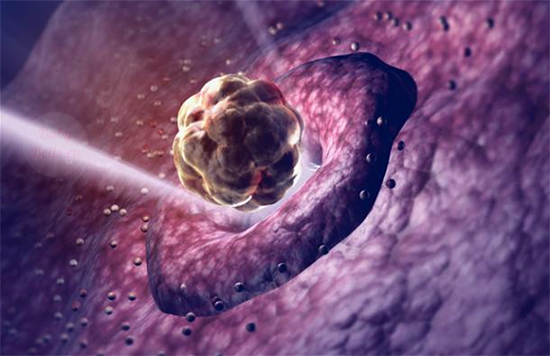
For both natural and artificial insemination, a woman needs to know the time of ovulation. It is during this period that the ...
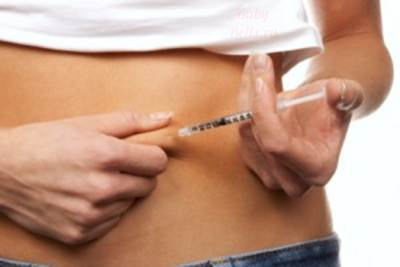
The natural conception of a baby is an invaluable gift of nature. However, some couples face the problem of needing medical intervention...
The mammary glands, like the entire female body, are very sensitive to fluctuations in hormones throughout the menstrual cycle. Because of this, they can increase in size, become harder and more sensitive. In addition, many women notice that their breasts regularly hurt before menstruation. In medicine, this phenomenon is called mastodynia, according to statistics, it occurs in about 60% of the fair sex.
Should my breasts hurt before menstruation?
There is an opinion that the state in question is a variant of the norm. In fact, mastodynia is a pathology.
In the second half of the menstrual cycle, the ratio of hormones such as progesterone, estrogen and prolactin changes significantly. This provokes the proliferation of ducts and lobules of the mammary glands - their increase as a result of an increase in the volume of epithelial tissue. Against the background of the described process, swelling of the breasts occurs, and the blood vessels in them are filled to the maximum.
Proliferation is indeed accompanied by some discomfort in the mammary glands, which manifests itself as engorgement, swelling, increased sensitivity of the nipples. However, there shouldn't be any pain.
Can breasts hurt before menstruation due to pregnancy?
Starting from, the body of a woman of reproductive age instinctively prepares for fertilization and lactation. That is why there is an expansion of the ducts and an increase in the lobules of the mammary glands - theoretically, milk should form in them.
If pregnancy occurs, breast proliferation continues, with discomfort and a noticeable increase in bust size. Pain is extremely rare or very mild.
In the case when fertilization has not occurred, the reverse process begins, called regression. The formed structures of the epithelium in the lobules and ducts atrophy and dissolve, and the mammary glands return to their normal state. This explains why the chest stopped hurting just before menstruation.
It is worth noting that the described mechanisms are purely individual for each woman, some do not feel any discomfort at all. But pain should not occur in any case.
When does the chest begin to hurt before menstruation?
Increased sensitivity of the mammary glands, an increase in their size and swelling are usually observed in the second half of the menstrual cycle, right before ovulation.
Sometimes breast proliferation begins later, 7-8 days before menstruation. This is a variant of the norm, since the preparation of the body for pregnancy is different for each woman.
How many days does the chest hurt before menstruation?
The duration of discomfort in healthy mammary glands is 1-2 weeks.
If the breasts remain puffy and continue to grow, pregnancy may have occurred. Otherwise, there is a possibility of development of pathological processes.
Why does my chest hurt so much before menstruation?
Mastodynia of any intensity is not normal. Therefore, if you feel both weak and severe pain, you need to contact a gynecologist, mammologist and endocrinologist.
The causes of pain syndrome can be the following diseases:
